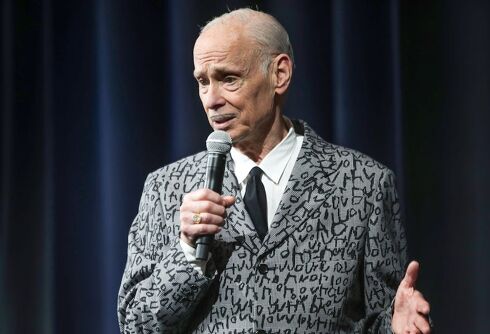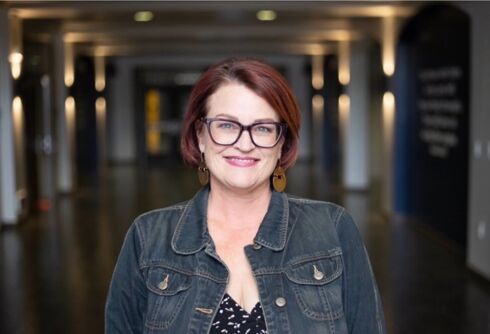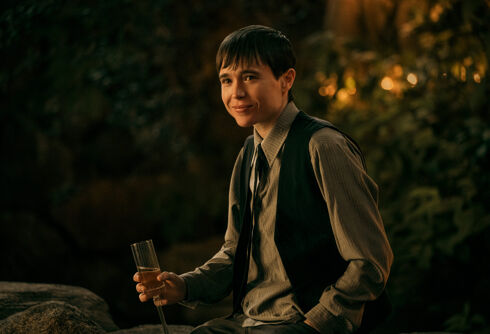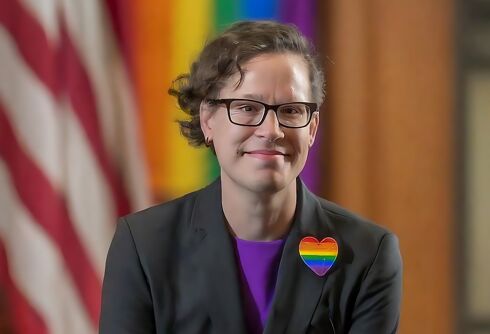Following success as a writer of erotica and as columnist for Examiner.com, author Xavier Axelson has surprised readers with his debut novel,”Velvet,” a work of historical fiction which tells the tale of a royal tailor.
While still containing the potent mix of love and longing for which he is known, the novel format allows Axelson to explore other elements which the short story format didn’t allow.

Prior to Velvet, Axelson had cultivated a devoted following of readers for his shorter, more steamy work, leading venerable critic Amos Lassen to anoint Axelson “a master of the erotic.” Now, however, with a new and different tale to tell, I was eager to learn more about Axelson’s journey between genres and formats, and the inspirations behind his work.
Kergan Edwards-Stout: Xavier, you were so gracious in interviewing me for Examiner, it is great to be returning the favor! With “Velvet,” you’re finally releasing your first novel. I guess the obvious question, given your success with erotica, is what made you decide to write a work of historical fiction?
Never Miss a Beat
Subscribe to our newsletter to stay ahead of the latest LGBTQ+ political news and insights.
Xavier Axelson: It was a complete surprise. I didn’t start out with the intention to write a historically-based novel. Then again, I never thought I would write erotica! I just go where the story and characters tell me. They are driving, so I simply follow behind and trust they know what to do and how to steer.
What can you tell us about Velvet?
It is the story of Virago, the royal tailor, and is set against a backdrop of decadence, privilege, and intrigue.
When you begin a new work such as this, especially when it contains historical elements, how deeply do you delve into research of the period?
“Velvet” is based on historical ideas, but the world and its characters within are completely fictitious. I love research. I find it is a great way to take the fear out of the unknown. In this case, Velvet was a pleasure to research because I love the Elizabethan, Medieval and Shakespearean periods. This story opened my eyes to so many unique details involving the coronation of Elizabeth I, the interior structures of castles, and even how the blind learn to sew and cut patterns.
Prior to this, most of your work has been with short stories and novellas. What prompted this leap to the novel form?
I didn’t set out to write a novel! I initially assumed that Velvet would be a novella, but, as the story progressed, the characters became more generous with their voices and stories. I felt it was my duty to return the favor and ensure their voices were heard.
While other authors pick one genre to focus on, it seems that you write what you want, regardless of genre.
It’s true. I don’t stick with any one genre. In between Earthly Concerns and Velvet, I wrote a short story called Cravings that was published as part of a zombie/horror collection. I’d never thought about writing a zombie story–and that’s exactly what intrigued me. I refuse to believe in genre imprisonment.
Where does your desire to write come from?
It comes from a need to write. I feel compelled to do it, as writing is an extension of my physical self. It speaks to my truest, most authentic self.
Most of your earliest literary success has been with the erotic. What is the most common misperception of erotica writing?
That it has little literary merit. However, I find the works of Henry Miller, Marquis de Sade, Anaïs Nin, and The Sleeping Beauty books by Anne Rice to be worthy defenders against such misconceptions. Erotica does not automatically equal pornography.
In addition to being described as a writer of erotica, I’ve also seen you labeled as a writer of psychological horror. Given all these different labels, how would you describe yourself?
Well, erotic, exotic, and a little psychotic!
In your work, is there a fine line between the three?
I think many people feel intimacy, whether sexual or otherwise, is terrifying. Psychosexual elements fascinate me, and while there is a fine line between the erotic and horrific, it is this line that is the most appealing to walk along. The idea of the beautiful grotesque and the terror found in the mundane are both subjects I enjoy exploring. Lines were meant to be crossed, as long as you’re brave enough to face whatever it is you may encounter on the other side.
Article continues below
With your background, is there a concern on your part that your work might not be taken seriously?
I don’t think what I do is serious. My writing is incredibly personal to me and while I may be attached to what I do and view it as important, I am not curing cancer or stopping global warming. That being said, what people may or may not think is beyond my control. My writing speaks for itself and there are many works of erotic fiction that are masterpieces.
Who would you name as the top three people that inspire you, and why?
Tennessee Williams, because his writing awes me, his ability to dig into the darkness frightens and inspires me to follow after his characters… Lars Von Trier, because his visions are startling, eye opening, and undeniable. And Georgia O’Keefe, because I believe in the power of the natural world she conveyed in her art.
Given that list, with all of their unique viewpoints and themes, when you look at your own work, is there one overarching theme or message you want to communicate?
Hope, and the belief in oneself to find the light in the dark.














